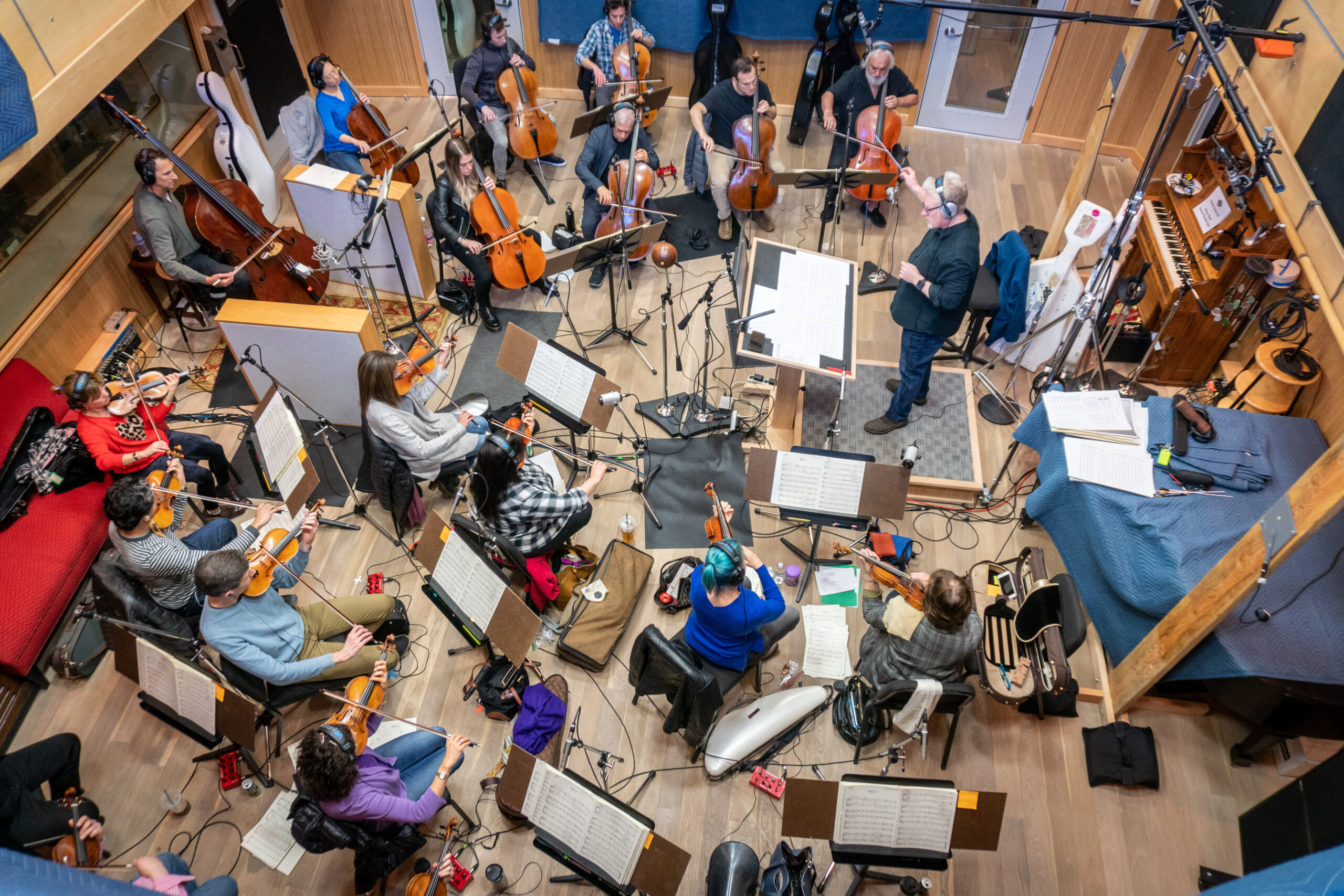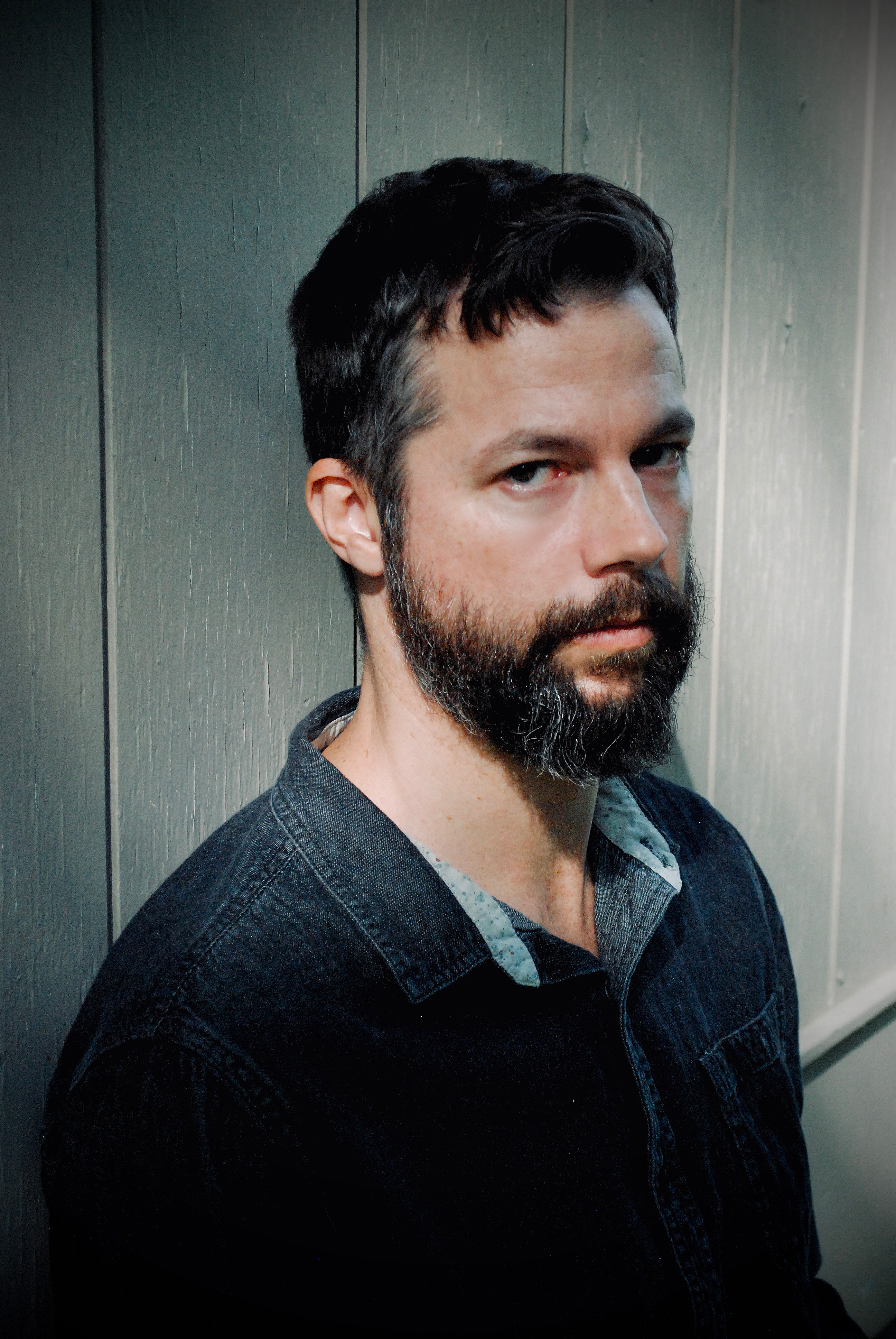
“Fair Play” composer Brian McOmber
A searing return to the kind of sexually heated, button-pushing provocation that’s being trumpeted by some as being a corporate spin on “Fatal Attraction,” Netflix’s “Fair Play” offers an even bigger element of the madness that big business will drive people too, no more so than an ego-wounded husband-to-be who can’t handle the fact that his partner has gotten the big promotion. Effectively written and directed by Chloe Domont in her feature debut after work on such testosterone-filled, money-flashing shows as “Ballers” and “Billions,” Domont aims her #metoo points like a loaded weapon that doesn’t let anyone off easily. It’s a searing turning of the screws give rhythmic alt. intensity by Brian McOmber. A member of the groups Marijuana Deathsquads and Dirty Projectors alongside his work for David Bryne, The Roots and St. Vincent when not studying Lyme Disease, McOmber’s prolific work on the indie scene has often served as nightmare fuel for the psychologically driven “Krisha,” “It Comes at Night” and the parasite documentary “The Pain of Others.” But it’s with “Fair Play” that McOmber achieves his most realistic sense of building dread. Employing warped metallic sounds, twisted strings, and nerve-digging intensity, all as ironically contrasted with the hip rhythm of Wall Street fashionistas, McOmber effectively captures the unstoppable trainwreck that’s as big a warning against inter-office relationships as the movies have offered.

Tell us about your musical and scoring start?
I started seriously playing music when I was about 10 years old in a basement down the street with some older kids in the neighborhood where I grew up. These older kids had cool parents who were swamp Yankee hippy types, and they had a great music collection. I would borrow my friend’s dad’s tapes and with a Walkman in my jacket, I’d listen to all this great music while delivering newspapers to the neighborhood on skateboard in the early morning hours before middle school. It was those formative, pre-teen years, and every morning on that paper route, I’d be alone and in the dark, skating around and listening to music that I’d then teach myself to play after school in the basement. One of my customers on that paper route was this old man who was always up at about 5:30 in the morning, smoking, waiting for me to deliver his paper. He never said much but a few times he asked me what I was listening to. One morning he didn’t show up to receive the paper and for the next few days I wondered why I didn’t see him. I learned about a week later that he had hung himself in the backyard about an hour after I delivered him the paper. He had left a note for the mailman to find him so that I wouldn’t be the one to do so the next morning when I delivered the paper. I used to freak myself out walking by his house after that, listening to Sabbath. I still think about this man when I listen to Sabbath. Today, a wide variety of porcini mushrooms grow in this man’s yard and I collect them and dry them out and give them as gifts to friends every fall. They taste great with eggs….
Anyway, another one of my friend’s dad’s had an old tape machine he lugged around in Vietnam that had quarter inch stereo ins/outs. We got a mixing board and a couple of cheap mics and quickly started writing and recording music ourselves by the time I was about 11 or 12 years old. This was in the mid-90’s. Lots of Nirvana and Sabbath covers. I still have the tape machine.
What do you think having a background in both science and music brings to your work?
I was trained as a scientist and as an athlete, but I never really studied music in a formal way. I think I approach music-making with a similar experimental curiosity and a general excitement about the process of coming up with an idea for something, running it by a group of collaborators, taking notes, trying stuff out, reacting to changes along the way and to just enjoy the process of discovery, even when you make “mistakes”. And in science as with films, things can get very expensive and you have to plan the dismount. You can’t experiment forever. Eventually you need to present the work in a cohesive way that makes sense to everyone. You must make your case to your colleagues, take notes, revise your plans and eventually publish your paper (or deliver the mixed music if we are talking film scores).

Marijuana Deathsquads
How would you view your part in the rise of alternative film scoring, and how important do you think all of your alt. band work has been in contributing to your scores?
I guess playing in bands forces one to collaborate with a group of people and collaborate often in a variety of ways that classically trained composers and many singer-writers don’t engage in as often. If you’re in a DIY band, everyone is part of the writing, rehearsing, performing, recording and oftentimes engineering (post stuff and so on). Film is very collaborative, even if a lot of the film music-making process sometimes isn’t for various reasons. Most of the greatest film projects I’ve worked on have opened up the music-making process and brought in other musicians, music producers, music editors, creative engineering…and same goes for bands in my opinion. Take creative engineering for example: What would the Beatles sound like without George Martin? I wonder what The Ronettes would have sounded like if Butch Vig had produced and engineered them in the box in the early age of digital? It would be a VERY different vibe!

Tell us about finding the musical approach to “Fair Play?”
Chloe and I talked a lot about finding the sounds she was looking for. Lots of time spent finding the tones and the textures and how these sounds would fit in with the sound design. After that, lots of demos and revisions, but not too many towards the end of the process. Assembling the bits and pieces into music.
The start of the score has a cool, synth propulsion to it that gradually gets creepier and then outrightly disturbing. How did you want to intensify the score to its boiling point?
As the film progresses, and the relationship between our characters starts to deteriorate, so should the music. The music starts pretty and eventually gets pretty ugly.

Tell us about your instrumentation here, particularly when it comes to music that gets under an audience’s skin while still being melodic as such.
Most of that would probably be strings and percussion, with synths handing the weird oscillating low end sub content. Not a whole lot of melody. Lots of heavy, steady pulses and jitter-y, gliss-y strings.
Given that you’ve scored horror scores for movies like Krisha and It Comes at Night, was it a challenge to play a movie where the “terror” is based on the boardroom driving people insane – an instance that we pointedly see in the beginning? Or did you want the score to make you think this whole thing would end in murder?
I think the big challenge was to have the music follow rather than lead while still keeping pace with the thriller/horror thing we wanted to maintain. Another challenge was for the music to help keep the audience in a suspended state where it felt possible for all the options to remain on the table as we near the end of the movie…and that definitely means the bloody options, too.

There’s also an extremely black sense of humor to the film, especially in how Emily is being driven crazy by her mom. How did you translate that into the score?
Yes, Chloe has a fantastic sense of humor and it’s the main thing that attracted me to the script she wrote. It’s not for everyone, but it’s the humor that hopefully helps lead us in and out of the harsh parts. Emily’s mom is sort of the comic relief and comes in right when we need her. Percussion served to lighten the mood in many scenes. Also having the pitches slide around.
What’s up ahead for you?
I’ve been working on a lot of awesome docs lately because of the strikes. “Shaken” and “20 Days in Mariupol”, which I worked on with Jordan Dykstra, will show at DocNYC this November. I did an indie drama/horror called, “The Shade”, I’m about to start a TV series for Apple and I’m currently working on a tune for an upcoming doc with some old pals about the musician, Swamp Dogg.

Watch “Fair Play” on Netflix HERE and buy the soundtrack HERE
Visit Brian McOmber’s website HERE
Special thanks to Sarah Roche at White Bear PR


